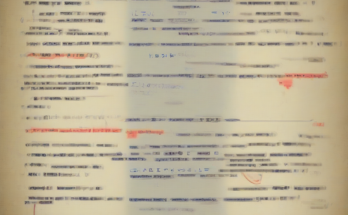Donate Your Car to the Salvation Army: A Comprehensive Guide to Making a Difference
Donating your car to the Salvation Army is a simple yet impactful way to contribute to a worthy cause. This comprehensive guide will walk you through the entire process, from initial considerations to final confirmation, ensuring a smooth and rewarding experience. We’ll cover everything you need to know, addressing common questions and concerns along the way.
Why Donate Your Car to the Salvation Army?
The Salvation Army is a well-established non-profit organization with a global reach, providing vital services to individuals and families in need. Your car donation directly supports their mission of alleviating poverty, providing shelter, and offering assistance to those facing hardship. By donating your vehicle, you’re not just getting rid of an unwanted asset; you’re actively participating in positive social change.
- Supporting a Worthy Cause: Your donation directly funds programs providing food, shelter, clothing, and rehabilitation services.
- Tax Benefits: You’ll receive a tax deduction for your donation, potentially saving you money on your taxes. (Consult a tax professional for specifics.)
- Convenient and Easy Process: The Salvation Army streamlines the donation process, making it straightforward and hassle-free.
- Environmental Responsibility: By donating your car, you ensure responsible disposal or resale, reducing environmental impact compared to scrapping it yourself.
- Peace of Mind: You can rest assured knowing your donation is handled ethically and contributes to a reputable organization.
How to Donate Your Car to the Salvation Army
The process is generally straightforward, but varying details might exist depending on your location. Here’s a general outline:
Step 1: Assessing Your Vehicle
Before you begin, honestly assess the condition of your vehicle. While the Salvation Army accepts vehicles in varying conditions, including those that don’t run, the value of the donation will influence the tax deduction you receive. Consider the vehicle’s age, mileage, mechanical condition, and overall appearance.
Step 2: Finding Your Local Salvation Army
The Salvation Army operates numerous branches across the country. Locate your nearest branch using their online search tool or by contacting them directly. This is crucial because each branch might have slightly different procedures for accepting vehicle donations.
Step 3: Contacting the Salvation Army
Once you’ve found your local Salvation Army, contact them via phone or online to express your interest in donating a vehicle. Provide them with details about your vehicle, including the make, model, year, and condition. They’ll guide you on the next steps.
Step 4: Scheduling Pickup or Drop-off
The Salvation Army will typically arrange for free towing or provide instructions for dropping off your vehicle. Confirm the date and time of pickup or drop-off, ensuring all necessary documentation is prepared.
Step 5: Preparing Your Vehicle
Before the pickup or drop-off, remove all personal belongings from your vehicle. This includes items in the glove compartment, trunk, and interior. The Salvation Army will not be responsible for lost or stolen items left inside.
Step 6: Transferring Ownership
You’ll need to sign over the title of your vehicle to the Salvation Army. They will provide the necessary paperwork. Ensure all the information is accurate and complete.
Step 7: Receiving Your Tax Deduction
After the donation is processed, you’ll receive a receipt for your tax deduction. Keep this receipt safe as you’ll need it when filing your taxes. The amount you can deduct will depend on the vehicle’s fair market value at the time of donation.
What Happens to Your Donated Car?
The Salvation Army handles donated vehicles in several ways, maximizing their value and impact:
- Resale: Vehicles in good condition are often sold, with the proceeds going towards supporting their programs.
- Parts Salvage: Vehicles in poor condition may be salvaged for parts, generating revenue that supports the organization.
- Recycling: Unsalvageable vehicles are responsibly recycled, minimizing environmental impact.
Frequently Asked Questions (FAQs)
- What types of vehicles do you accept? The Salvation Army generally accepts most vehicles, including cars, trucks, motorcycles, and boats. However, specific guidelines might vary by location, so it’s best to contact your local branch.
- Do you accept vehicles that don’t run? Yes, in many cases, even non-running vehicles are accepted. However, the value of the donation might be lower.
- How do I get a tax receipt? You’ll receive a tax receipt after the donation is processed. This receipt will include information necessary for claiming your tax deduction.
- What if I owe money on my vehicle? You’ll need to settle any outstanding loans or liens before donating your vehicle. Contact your lender to determine the best way to handle this.
- What if I need to pick up my personal belongings after donation? Generally, this is not allowed. Ensure all personal items are removed before the vehicle is picked up or dropped off.
- What is the process for donating a vehicle with a salvage title? Contact your local Salvation Army branch; they may still accept the donation, but the process might differ slightly.
- Is there a minimum or maximum value for donated vehicles? There are generally no specific minimum or maximum values, but the fair market value at the time of donation will determine your tax deduction.
- Can I donate a vehicle in a different state than where I live? This is possible, but you will likely need to arrange transportation and familiarize yourself with the processes in the state of donation.
- What if my vehicle has significant damage? It’s still worth contacting your local Salvation Army, as they may still accept the vehicle, although the value for your tax deduction may be affected.
- How long does the donation process take? The entire process, from initial contact to receiving the tax receipt, generally takes a few weeks, but this may vary.
Choosing the Right Charity: Why the Salvation Army?
With numerous charities accepting car donations, choosing the right organization is crucial. The Salvation Army stands out due to its extensive network, transparent operations, and wide-ranging impact. Their commitment to assisting those in need, coupled with their efficient handling of vehicle donations, makes them a reliable and trustworthy choice.
Their established reputation ensures that your donation will be used effectively, contributing directly to programs that help individuals and families overcome hardship. By donating your car to the Salvation Army, you’re supporting a cause that addresses poverty, homelessness, and various other social issues. It’s a donation with tangible, positive consequences.
In conclusion, donating your car to the Salvation Army offers a convenient, impactful, and tax-advantageous way to contribute to a significant cause. This comprehensive guide has provided a detailed understanding of the process, addressing potential concerns and highlighting the benefits of this form of charitable giving. Consider making a difference today – your unwanted vehicle can become a powerful instrument of change for those in need.



